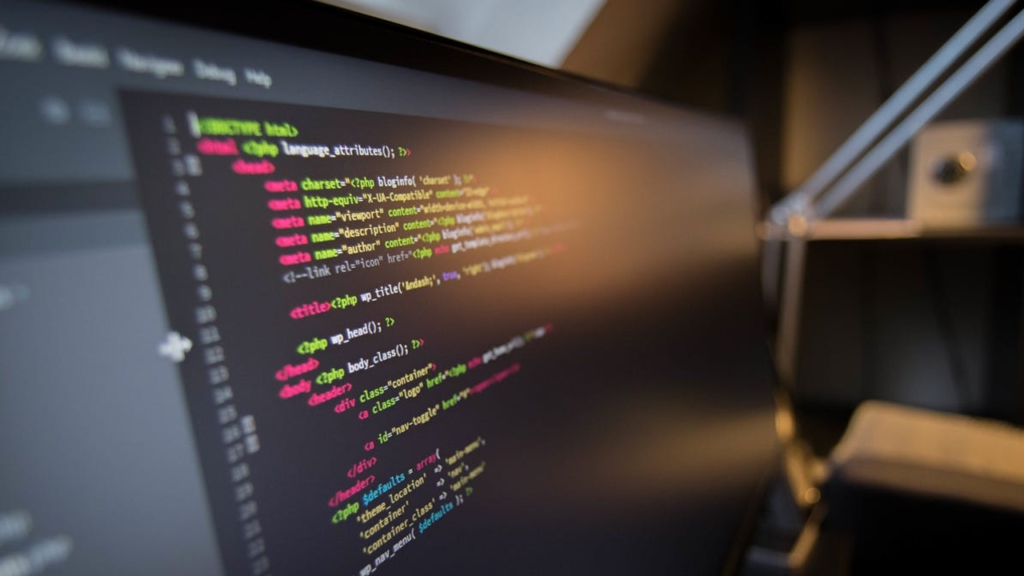Embarking on the journey of game development can be exhilarating, yet daunting, especially when it comes to mastering the complexities of C++. This programming language stands as a cornerstone in creating sophisticated and high-performance video games. Whether you’re an aspiring game developer or a seasoned programmer looking to expand your skill set, this guide will navigate you through the essentials of learning C++ for game development. Unlock the potential of C++ and bring your imaginative game ideas to life with unparalleled efficiency and power.
Understanding C++ Basics for Gaming
Embarking on the journey of game development with C++ requires a foundational understanding of its basics. C++ is a powerful language that offers a blend of high-level functionality with low-level hardware access, making it an ideal choice for game development. The first step towards mastery is to comprehend the syntax and structure of C++, which includes variables, control structures, functions, and data types. These elements form the building blocks of any program and are crucial for creating efficient game logic.
Moreover, understanding object-oriented programming (OOP) principles is fundamental in C++. OOP allows developers to create objects that can interact within the game environment, enhancing the flexibility and maintainability of the code. Concepts such as classes, inheritance, and polymorphism not only help in organizing code more efficiently but also play a significant role in designing game characters and mechanics. Furthermore, mastering memory management is vital in game development to ensure optimal performance and prevent leaks that can affect the gameplay experience.
Additionally, grasping the Standard Template Library (STL) is indispensable for game developers. The STL provides a collection of ready-to-use templates for common data structures and algorithms, which can significantly speed up the development process. Utilizing STL for tasks such as handling game states, managing resources, or implementing complex game algorithms can make the code more reliable and efficient.
| Concept | Description | Importance in Game Development |
|---|---|---|
| Syntax and Structure | Foundation of writing C++ code | Essential for creating basic to advanced game functionalities |
| Object-Oriented Programming | Design principle based on objects and classes | Crucial for game characters and mechanics design |
| Memory Management | Efficient allocation, use, and release of memory | Key to ensuring optimal game performance |
| Standard Template Library (STL) | Templates for data structures and algorithms | Speeds up development and enhances code reliability |
Mastering C++ Game Development Tools

Embarking on a journey to master C++ for game development necessitates a deep dive into the array of tools specifically tailored for this purpose. At the core of this exploration is understanding the intricacies of Integrated Development Environments (IDEs) like Visual Studio or Code::Blocks, which provide a comprehensive ecosystem for coding, debugging, and testing your game projects. Additionally, leveraging powerful game engines such as Unreal Engine, which is natively designed to work seamlessly with C++, can significantly expedite the development process by providing ready-made solutions for physics, graphics, and AI functionalities.
Furthermore, proficiency in using version control systems such as Git is indispensable for game development. These systems facilitate team collaboration and ensure the integrity of the project’s codebase over time. Embracing these tools not only enhances the efficiency and quality of your game development projects but also prepares you for industry standards and practices. Lastly, familiarizing yourself with performance profiling tools is crucial to optimize your game’s performance, ensuring a smooth and responsive experience for the players.
Equipping yourself with knowledge of these tools and how they integrate within the C++ game development workflow is fundamental. It empowers you to bring your creative visions to life with precision and professionalism. Whether you are developing an indie game or aiming for blockbuster titles, mastering these tools is your stepping stone to success in the game development arena.
- Visual Studio
- Code::Blocks
- Unreal Engine
- Git
- Performance Profiling Tools
Practicing with Simple Game Projects
Embarking on the journey of learning C++ for game development can seem daunting at first. However, one of the most effective strategies to grasp the fundamentals and nuances of this programming language is by practicing with simple game projects. This hands-on approach not only solidifies your understanding of C++ syntax but also introduces you to game logic and physics. Starting with projects like a tic-tac-toe game, a simple platformer, or a basic text adventure game can offer invaluable learning experiences. These projects are complex enough to challenge your problem-solving skills and enhance your coding abilities, yet manageable enough for beginners.
As you progress, incrementally increasing the complexity of the projects can help you understand more advanced concepts such as object-oriented programming, data structures, and algorithms which are pivotal for game development. This step-by-step escalation allows for a smoother learning curve, making the acquisition of knowledge more enjoyable and less overwhelming. Moreover, it’s crucial to analyze and refactor your code after completing each project. This practice not only improves the efficiency and readability of your code but also deepens your understanding of how different elements interact within a game.
Finally, engaging with the community by sharing your projects and seeking feedback is an excellent way to gain insights and learn from the experiences of others. It can also open up opportunities for collaboration, which is a key aspect of professional game development.
| Project Type | Key Concepts | Difficulty Level |
|---|---|---|
| Tic-Tac-Toe | Basic Syntax, If-Else, Loops | Beginner |
| Simple Platformer | Object-Oriented Programming, Basic Physics | Intermediate |
| Text Adventure Game | Data Structures, File I/O | Intermediate |
| Puzzle Game | Algorithms, Problem Solving | Advanced |
| 2D Shooter | Game Loops, AI Basics | Advanced |
Delving into simple game projects not only hones your C++ skills but also lays a strong foundation in game design principles. This blend of programming prowess and creative design is crucial for any aspiring game developer. By systematically increasing project complexity, you adapt to the rigors of game development, making it easier to tackle more complex projects in the future. Thus, practicing with simple game projects is not merely about coding but about embracing the holistic process of game creation.
Exploring Advanced C++ Game Features

As you advance in your journey of learning C++ for game development, delving into the sophisticated features of C++ becomes inevitable. Understanding these advanced aspects is not just about enhancing code efficiency but also about unleashing the full potential of game dynamics. Among these features, smart pointers stand out for their ability to manage memory automatically, thereby preventing leaks that can degrade game performance.
Another cornerstone of advanced C++ game programming is the use of templates. Templates allow for the creation of flexible functions and classes that can operate with any data type. This is particularly useful in game development, where the need for generic programming is frequent due to the diverse functionalities games require. Moreover, mastering the Standard Template Library (STL) empowers developers to use a wide array of ready-made classes for data handling, which can significantly speed up the development process.
Lastly, understanding and implementing multi-threading and concurrency in your games can dramatically improve performance. By dividing tasks across multiple threads, games can run more smoothly and efficiently, enhancing the player’s experience. However, it’s crucial to manage these threads carefully to avoid common pitfalls such as deadlocks and race conditions. Embracing these advanced features will not only refine your coding skills but also elevate your game development to a professional level.
| Feature | Description | Benefit |
|---|---|---|
| Smart Pointers | Automates memory management. | Prevents memory leaks. |
| Templates | Enables generic programming. | Increases code reusability. |
| STL | Collection of ready-made classes. | Speeds up development. |
| Multi-threading | Allows concurrent task execution. | Improves game performance. |
| Concurrency Management | Controls threads synchronization. | Avoids deadlocks and race conditions. |
Joining C++ Game Development Communities
Embarking on the journey of mastering C++ for game development is a thrilling adventure that can be significantly enhanced by joining dedicated communities. These groups provide invaluable resources, such as access to experienced developers, unique learning materials, and the latest industry news. By becoming part of a community, you are not just gaining resources but also potential mentorship opportunities that can accelerate your learning curve.
One of the key benefits of these communities is the diversity of perspectives they offer. Whether it’s tackling complex coding challenges or exploring innovative gameplay mechanics, the collective knowledge within these groups can offer solutions and insights that are hard to find elsewhere. Moreover, many communities often have members who have contributed to successful game projects, providing real-world examples and case studies that can inspire and inform your own development efforts.
Additionally, these communities are pivotal in staying updated with the latest trends and technologies in game development. From new C++ updates to breakthroughs in game design, being an active member ensures that you are always at the forefront of the industry, ready to implement the most advanced practices in your projects.
Maximizing Benefits from C++ Game Development Communities
In order to fully leverage the advantages of joining a C++ game development community, consider actively participating in discussions, attending webinars and meetups, and contributing to community projects. Such involvement not only enriches your learning experience but also helps in building a professional network that can be crucial for your career in game development.
- Seek mentorship and guidance from experienced developers
- Contribute to open-source projects and community challenges
- Stay informed about the latest C++ updates and game development tools
- Share your own experiences and solutions to help others
- Participate in code reviews to sharpen your coding skills
Joining C++ game development communities opens up a world of opportunities for learning, networking, and personal growth. It provides a supportive environment where passionate developers can share, learn, and collaborate on their journey towards mastering game development with C++. Embrace the collective wisdom of these communities, and watch as it transforms your coding skills and career prospects.

Is a game developer and writer with over seven years of experience in the gaming industry. Specializing in game design, development trends, and emerging technologies. He has worked on indie game projects and larger development teams, sharing his insights to help aspiring developers navigate the evolving world of game creation. Ethan’s articles focus on practical tips, game mechanics, and tools to inspire creativity in the gaming community.






